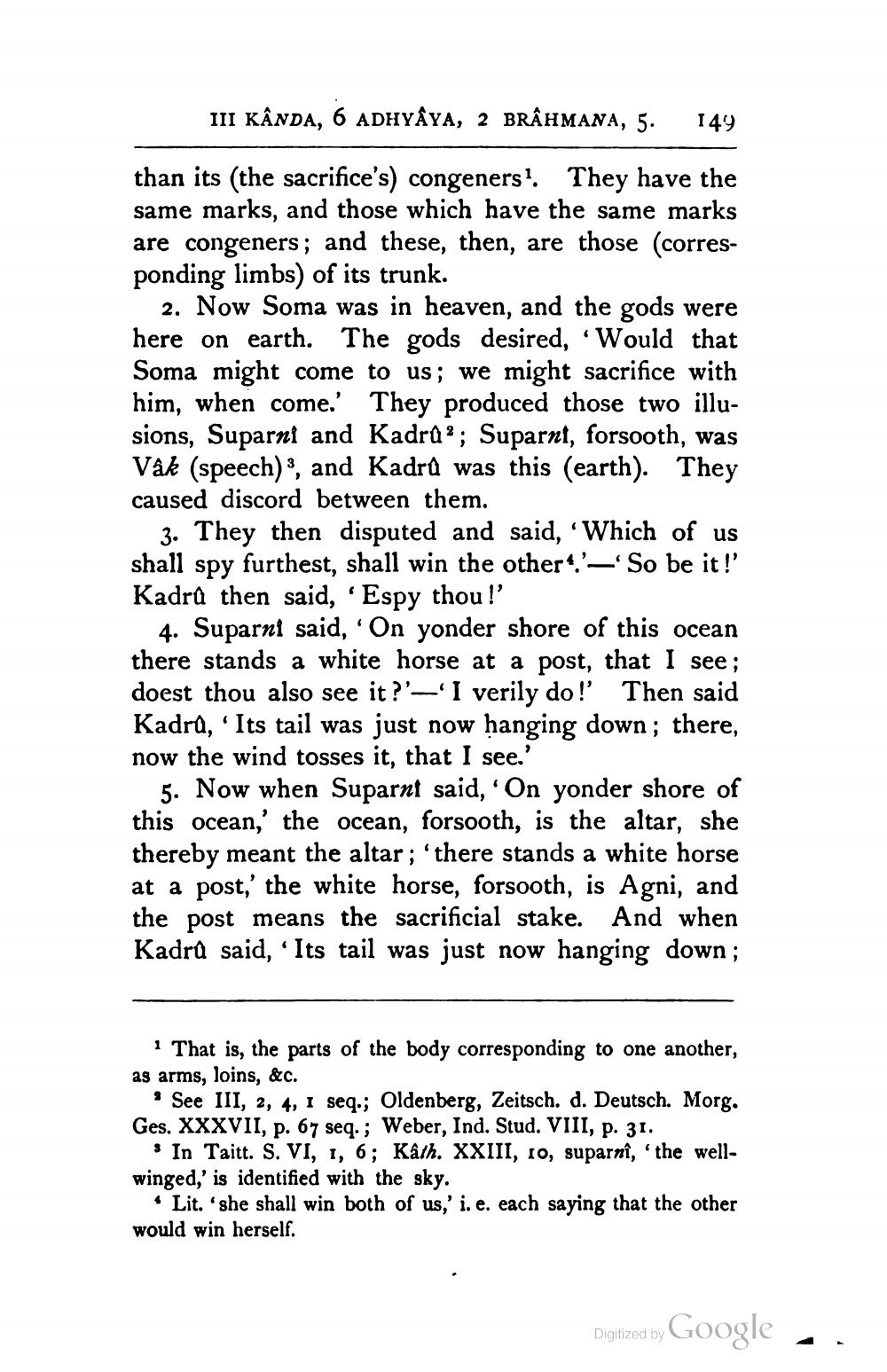________________
III KÂNDA, 6 ADHYÂYA, 2 BRÂHMANA, 5.
149
than its (the sacrifice's) congeners?. They have the same marks, and those which have the same marks are congeners; and these, then, are those (corresponding limbs) of its trunk.
2. Now Soma was in heaven, and the gods were here on earth. The gods desired, “Would that Soma might come to us; we might sacrifice with him, when come.' They produced those two illusions, Suparni and Kadra? ; Suparnt, forsooth, was Vâk (speech)s, and Kadrû was this (earth). They caused discord between them.
3. They then disputed and said, 'Which of us shall spy furthest, shall win the othert '—'So be it!' Kadrų then said, 'Espy thou!'
4. Suparni said, 'On yonder shore of this ocean there stands a white horse at a post, that I see; doest thou also see it?'- I verily do!' Then said Kadra, * Its tail was just now hanging down; there, now the wind tosses it, that I see.'
5. Now when Suparnt said, 'On yonder shore of this ocean,' the ocean, forsooth, is the altar, she thereby meant the altar ; 'there stands a white horse at a post,' the white horse, forsooth, is Agni, and the post means the sacrificial stake. And when Kadrd said, 'Its tail was just now hanging down;
1 That is, the parts of the body corresponding to one another, as arms, loins, &c.
I See III, 2, 4, I seq.; Oldenberg, Zeitsch. d. Deutsch. Morg. Ges. XXXVII, p. 67 seq.; Weber, Ind. Stud. VIII, p. 31.
* In Taitt. S. VI, 1, 6; Kath. XXIII, 1o, suparnî, 'the wellwinged,' is identified with the sky.
• Lit. 'she shall win both of us,' i. e. each saying that the other would win herself.
Digitized by Google
.




